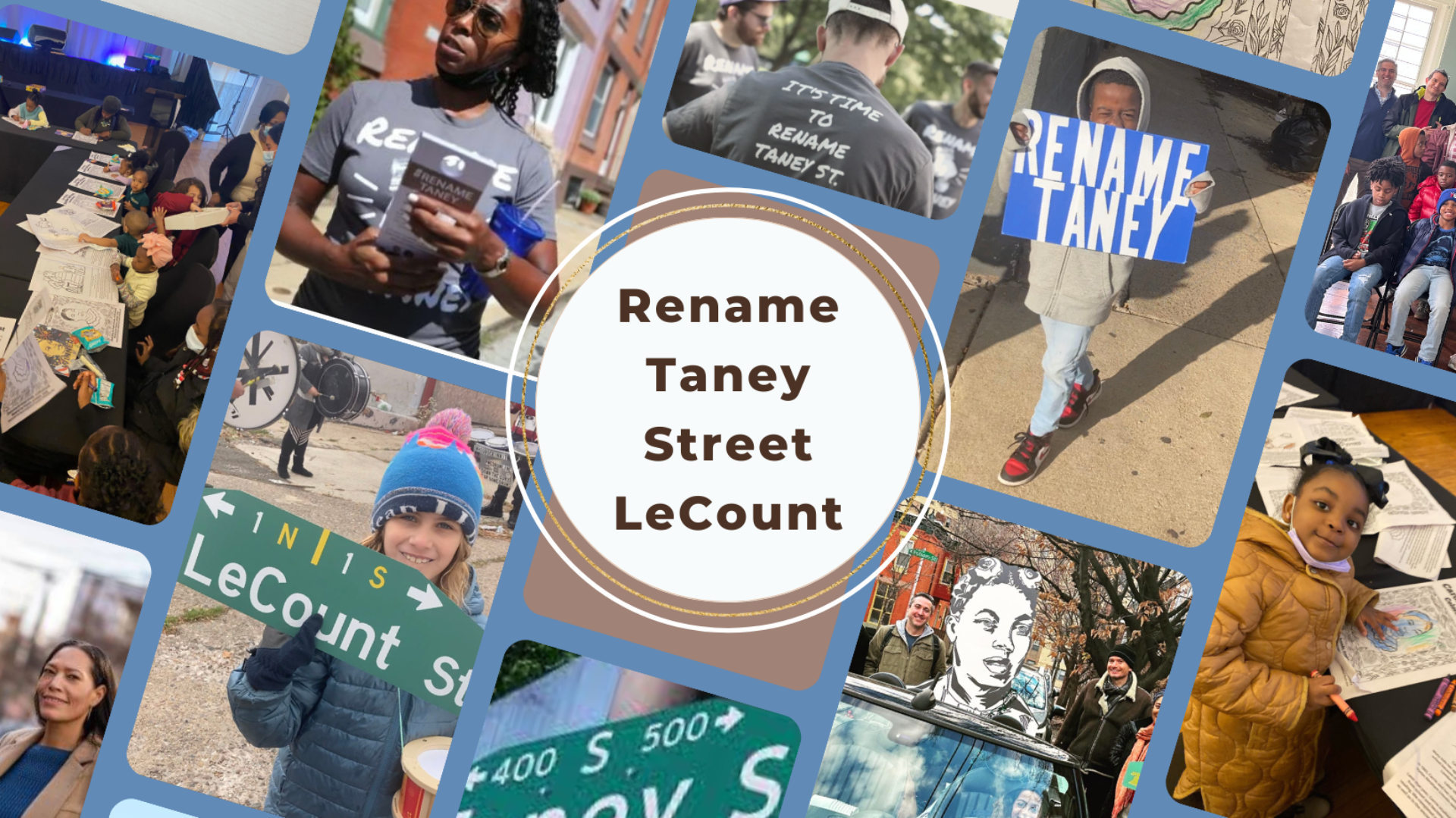
In 1858, Philadelphia’s City Council changed approximately 971 street names in one ordinance.
One of these streets was “Minor street” which was changed to “Taney street.”
Racist leaders were eager to honor Supreme Court Justice Roger Taney for having ruled in the prior year’s Dred Scott decision that African Americans were “altogether unfit to associate with the white race, either in social or political relations; and so far inferior, that they had no rights which the white man was bound to respect; and that the negro might justly and lawfully be reduced to slavery for his benefit.”
Meanwhile, in Philadelphia a powerful coalition of Black civil rights activists were campaigning for equality. They fought the Civil War and gained the 13th, 14th, and 15th amendments that ended slavery, overturned the Dred Scott decision, and gained the right to vote for African American men.
One of these activists was Caroline Rebecca LeCount (1846-1923).
LeCount graduated from the Institute for Colored Youth (now Cheyney University) in 1863. She embarked on a long career as an educator and activist.
On March 25, 1867 LeCount became Philadelphia’s “Rosa Parks” when she personally forced the integration of the public transportation system in a heroic incident that took place at 11th and Lombard streets.
Her fiancee Octavius Catto was tragically assassinated on election day in 1871 – the first election day in Philadelphia where Black voters had their enfranchisement guaranteed by the 15th amendment.
LeCount never married. She taught thousands of students across her long career as principal of a public school that was eventually named for her slain fiancee.
Today, both LeCount and Catto are buried in the same section of Eden Cemetery in Collingdale.
Unfortunately, what was once Minor street is still Taney street, but we have received overwhelming support to rename it in honor of Philadelphia’s heroic civil rights activist and educator, Caroline Rebecca LeCount.
Please click here to read more about Roger Taney, Taney Street, and the history of the Dred Scott case.
Local history teacher Leo Vaccaro wrote this deep dive into Philadelphia archival collections and argued that Taney Street is indeed named after Roger Taney.
